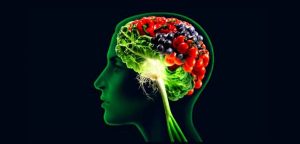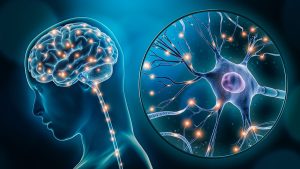Introduction
When we think about nutrition, we often focus on how our food choices impact our physical health, such as our weight and risk of disease. However, what we eat can also have a significant impact on our mental health. From contributing to anxiety and depression to affecting our ability to cope with stress, our diet can be a major player in our emotional wellbeing.
The Link Between Stress and Diet
When we experience stress, our bodies release cortisol, a hormone that works to regulate our levels of stress. Cortisol is vital for helping us deal with stress, but too much of it can cause negative effects. Eating a diet high in sugar, processed foods, and unhealthy fats can cause our cortisol levels to rise and stay elevated, causing chronic stress.
Over time, chronic stress can lead to a range of mental health issues, including anxiety and depression. When we’re chronically stressed, our bodies are constantly in a state of fight-or-flight, which can lead to feelings of being on edge and unable to cope.
The Negative Impact of Processed Foods
Processed foods like fast food, frozen dinners, and snacks are often high in unhealthy fats, sugar, and salt. According to a study by the American Psychological Association, people who consume a diet high in processed foods are more likely to experience symptoms of depression.
One reason for this could be the impact these foods have on our gut health. Our gut houses trillions of bacteria that help to regulate our bodily functions, including our emotional wellbeing. When we eat a diet high in processed foods, we disrupt the balance of our gut bacteria, which can lead to inflammation and a range of health issues, including depression and anxiety.
The Role of Nutrient Deficiencies
When we don’t get enough of certain nutrients, like omega-3 fatty acids, B vitamins, and magnesium, it can impact our mental health. For example, studies have shown that people who don’t consume enough omega-3 fatty acids are more likely to experience symptoms of depression.
Similarly, when we don’t get enough B vitamins, it can cause symptoms like fatigue, irritability, and even depression. Magnesium is another vital nutrient that plays a role in our mental health, as it helps to regulate our levels of cortisol and contributes to feelings of calmness and relaxation.
The Benefits of a Nutrient-Dense Diet
While many of us know that a diet high in fruits, vegetables, lean protein, and healthy fats is good for our physical health, it’s also essential for maintaining good mental health. When we eat a diet rich in whole foods, we provide our bodies with the nutrients they need to function optimally.
A nutrient-dense diet can help to regulate our cortisol levels, reduce inflammation in our bodies, and support our gut health. All of these factors contribute to a better mood, improved cognitive function, and better stress management.
Case Studies
One study published in the American Journal of Public Health found that people who consumed a diet high in fruits, vegetables, and whole grains were less likely to experience symptoms of depression. This study suggests that a diet rich in whole foods can be an effective way to mitigate depression symptoms.
Another study published in The Journal of Nutrition found that a diet rich in omega-3 fatty acids helped to reduce feelings of anxiety and improve cognitive function in young adults. This study suggests that incorporating foods like salmon, nuts, and seeds into your diet can be a powerful way to support your mental health.
Conclusion
When we think about stress, we often focus on external factors like work, finances, and relationships. However, what we eat can also have a significant impact on our mental health. By incorporating whole foods, healthy fats, and nutrient-dense foods into our diets, we can help to manage stress, reduce symptoms of depression and anxiety, and support our mental wellbeing. So, the next time you reach for a bag of chips or a fast food burger, ask yourself: is this food contributing to my stress, or helping to reduce it?








